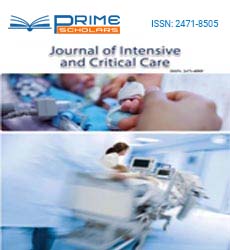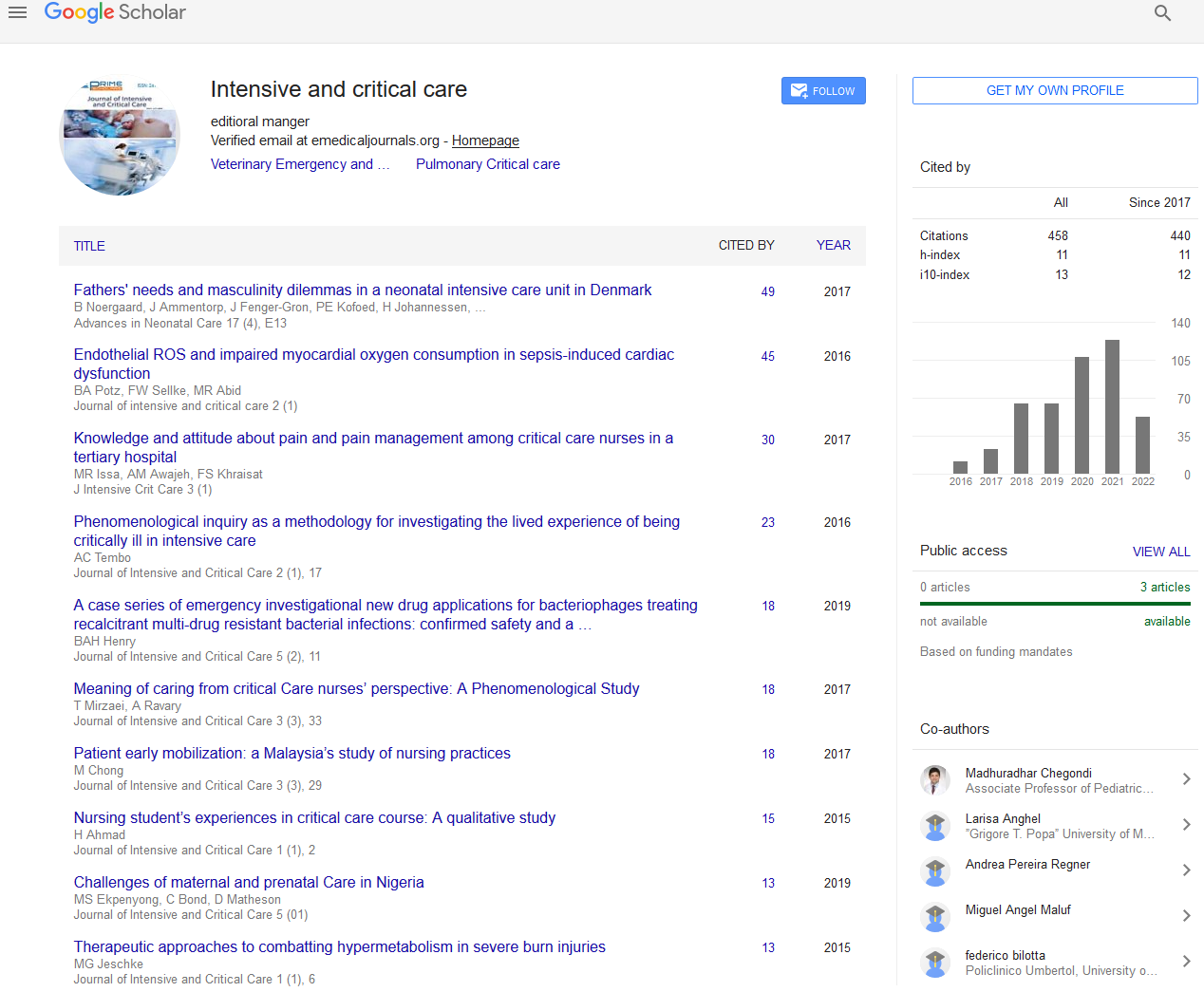Commentary - (2022) Volume 8, Issue 7
Biological Research in the Evolution of Cancer Surgery: A Personal Perspective
Sudha Sundar*
Department of Cancer and Genomic Sciences, University of Birmingham, UK
*Correspondence:
Sudha Sundar,
Department of Cancer and Genomic Sciences, University of Birmingham,
UK,
Email:
Received: 28-Jun-2022, Manuscript No. IPJICC-22-14070;
Editor assigned: 30-Jun-2022, Pre QC No. IPJICC-22-14070 (PQ);
Reviewed: 14-Jul-2022, QC No. IPJICC-22-14070;
Revised: 19-Jul-2022, Manuscript No. IPJICC-22-14070 (R);
Published:
26-Jul-2022, DOI: 10.35248/2471-8505.8.7.92
Description
Cancer surgery is an operation or procedure that removes a
tumor and sometimes nearby tissue. This is the oldest form of
cancer treatment and is still effective in treating many types
of cancer today. Doctors who specialize in cancer surgery are
called “oncologists.” Postoperative patient care in the ICU presents
many challenges. Postoperative patients with active malignancies
may be more difficult to treat in the intensive care
unit. Nutrition, infections, and the need for postoperative mechanical
ventilation support for cancer patients present challenges
that may extend patient length of stay in the ICU. Critical
care providers need to be aware of these challenges when
caring for this patient population. Given the increasing efficacy
of cancer treatment, improved prognosis, and increased life
expectancy, it is expected that the number of cancer patients
requiring ICU admission will continue to increase in the coming
years; with intensive an area of continuing education essential
to education is created. Observational studies have shown
improvements in quality of life as well as mortality in cancer
patients admitted to the intensive care unit. However, this is
still significantly worse than the general population both at 3
and 12 months after hospital discharge, especially in haematological
patients. Surgery can be done in a doctor’s office, clinic,
surgery center, or hospital. Where you go depends on the type
of surgery and how long it takes to heal. Surgery may require
medications called anesthesia to block the perception of pain.
There are different types of anesthesia, depending on the type
and extent of surgery. If you have to stay in the hospital overnight
or for several days after surgery, it is called inpatient surgery
or you don’t need to be hospitalized at all. If you can leave the hospital on the same day, it is called outpatient surgery or
ambulatory surgery. Traditionally, the main goal of cancer surgery
is to cure cancer by removing everything from the body.
Surgeons usually do this by cutting into the body and removing
the cancer along with surrounding healthy tissue to ensure
that all the cancer is removed. The surgeon may also remove
some lymph nodes in the area to see if the cancer has spread.
This helps the doctor assess the likelihood of recovery and the
need for further treatment. For breast cancer surgery, the doctor
may remove the entire breast or remove the part of the
breast containing the cancer and the surrounding tissue. The
cancer can be removed by removing only part of it. For lung
cancer surgery, doctors may remove part or the entire lung to
ensure that all cancer is removed. In either case, the surgeon
may remove some lymph nodes in the area during surgery to
see if the cancer has spread. Admission to the intensive care
unit does not necessarily mean that all necessary measures
will be taken as long as possible. We have to consider many
possibilities. Patients desiring unlimited treatment for at least 5
days may be enrolled and reassessed accordingly. Intervention
with hemodynamic or renal support can limit IMV. It can also
be checked in to optimize comfort measurements for patients
with poor prognosis or to reduce dyspnea using high-flow nasal
cannulas or his IMV.
Acknowledgement
None.
Conflicts of Interest
The authors declare no conflict of interest.
Citation: Sundar S (2022) Biological Research in the Evolution of Cancer Surgery: A Personal Perspective. J Intensive Crit Care.
8:92.
Copyright: © 2022 Sundar S. This is an open-access article distributed under the terms of the Creative Commons Attribution
License, which permits unrestricted use, distribution, and reproduction in any medium, provided the original author and source
are credited.

